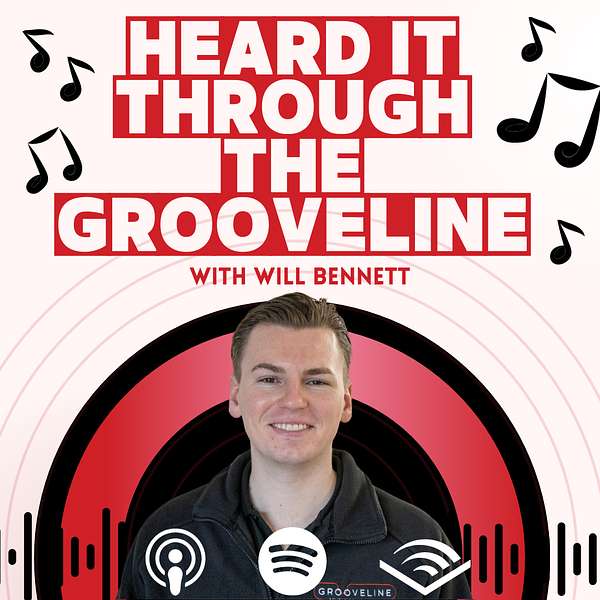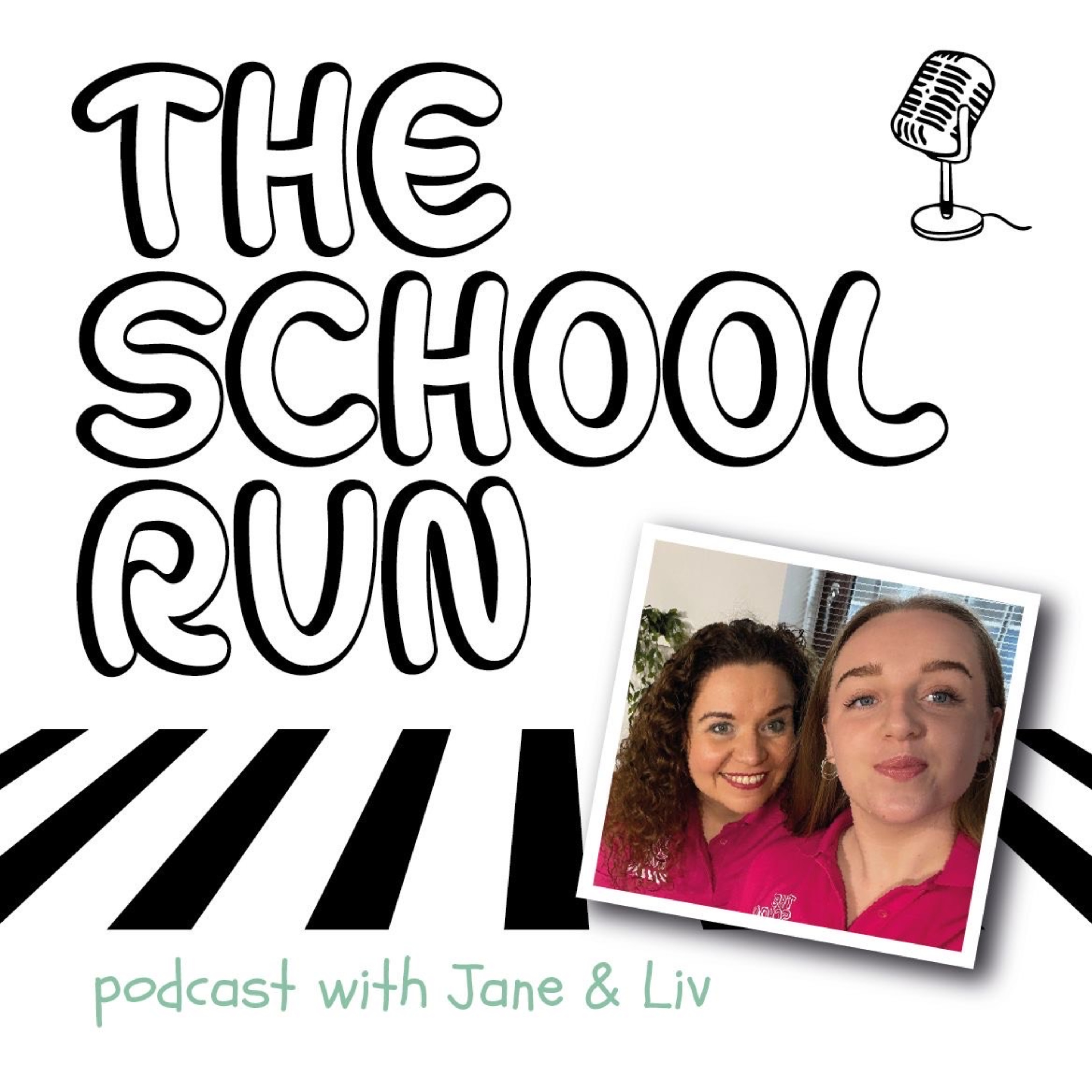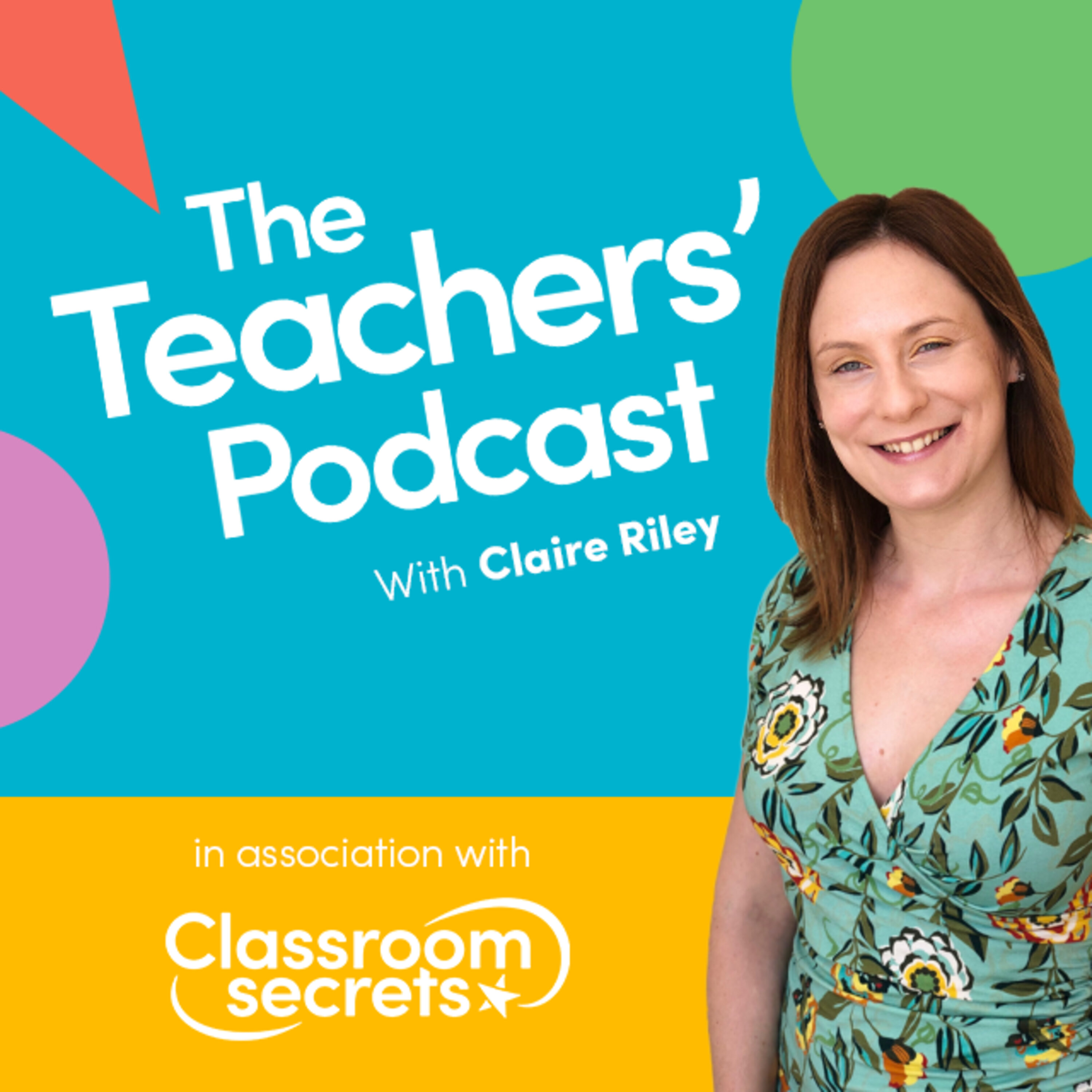
Heard It Through The Grooveline
Join Will, founder of Grooveline Music Education as he explores the subject of music education and most importantly - how parents can support their child's music education, even if they are not musical themselves!
Expect top tips, actionable advice, interviews with experts, sharing of personal experience and maybe some humour along the way!
Heard It Through The Grooveline
S1Ep14: Putting Learning Into Context & Playing With Other Musicians
In this episode of Heard It Through The Grooveline, founder Will Bennett explains the importance of putting music learning into a group context, particularly in a band environment. He shares his personal experiences of playing in a band during his teenage years and how it improved his confidence and gave him a purpose. Bennett suggests that parents should encourage their children who are learning music to also play in a group. He explains the technical benefits, including improving their skills and identifying discrepancies that can be masked when playing alone. In addition, he announces that Grooveline Music Education will be running a summer camp for different beginner, intermediate and advanced levels, where students learn to play musical instruments and perform in a group.
00:02 Introduction to the Episode
01:05 The Importance of Playing in a Band
01:20 Personal Experiences and Benefits of Band Playing
02:42 Encouraging Your Child to Play with Others
03:11 Technical Improvements from Band Playing
04:36 Grooveline's Summer Camp Announcement
05:38 The Value of Playing Music with Others
06:05 Contact Information and Closing Remarks
www.groovelinemusiceducation.com
@groovelinemusiceducation on social media!
Looking for your next move as a music educator? Perhaps you want to start a new chapter in your career, build a new lifestyle after years on the road, or you're looking for the opportunity to create your own business but don't know where to start?
We are now recruiting pilot franchisees! Not your average owner/operator children's activity franchise - we are looking for business-minded investors to build a team, create a valuable asset for their future and help make a difference to the state of primary music education un the UK.
Grooveline Music Education is on a mission to reimagine and revolutionise primary music education.
We believe that engaging with music education at an early age is a crucial part of a child’s development. It provides an extraordinary range of cognitive, emotional, and social benefits that help children to thrive in all areas of their lives.
To do this, we are on a journey to bring Grooveline Music Education to schools around the UK. In order to meet our ambitious goal we are looking for passionate, like minded individuals who want to lead the music education revolution with us.
Sound like something you want to be part of?
Click below to find our more, download a prospectus or book a chat!
www.groovelinemusiceducation.com/franchise
Hello and welcome to another episode of Heard It Through The Grooveline. My name is Will Bennett and I'm the founder of Grooveline Music Education. I'm here to help you know how to best support the musical education of your child, even if you are not musical yourself. At Grooveline, when the lesson ends, the learning doesn't stop.
And so as part of our wraparound approach to music education, this episode I will be discussing putting what you have learnt into context and playing in a band environment.
Hi, everyone. Hope. Hope you're well welcome to another episode. Do something slightly different this week. I normally write down what I want to talk about. And have maybe, seven or eight main bullet points. And then within each. Headline, I guess a few little sentences that I want to say and main points they got along. Decided just to go for it this week.
I kind of feel like this is something that I. Should be able to talk about quite freely. So we'll see how it goes. You let me know if it sounds rubbish afterwards. What I want to talk about today is. Putting music and the things you have learned. Into context. So what I mean by that is. Really playing with other people and putting it into a band kind of situation. I think if, I think back to some of the best times I ever had playing the guitar, I would say that it was probably when I was 13 or 14.
And you know, you've heard me talk about going to Mike shed and practicing on Sunday mornings before. But even before that, we used to. I have a boundary, some friends from school and we used to play rock music. I used to really love that. And one of our friends had a shed in the garden with a drum kit in it, and we used to go and,
take our amps and plug in. We would just kind of practice for a few hours, go a little bit crazy, jump around.
And in fact, I was going to say, I'm sure about she, I know for a fact that we didn't sound very good because I've listened to recordings since. But at the time we felt like, you know, brilliant. We thought we were the best people in the world. And it was really good fun. And we did a couple of gigs actually as well. You know, people from school came along.
We had little tickets to sell it at the local community center. And he's just brilliant. Really? It's, you know, something that's very social. It was very fun. Gave us a lot of confidence and also gave us kind of a purpose and something to work towards. So. , why had I been practicing guitar all these years?
It suddenly made sense to me like, oh, it's so I can do this. I can play all these songs and I can feel confident doing it. And it can sound, you know, decent at least.
Yeah. And just when you kind of. Play your instrument and someone else is playing their instrument and it sounds good together. It really kind of feels amazing and that's. It all kind of suddenly makes sense.
So, I guess what I'm saying is, why don't you, if your child is learning music, why don't you try and encourage them to play music with someone else? Why don't you have a think about, if they've got some other friends that could play instruments, they could come round and have a jam. Maybe some siblings may be you yourself, complacent instrument.
You could play with them. Or even attend a club, it doesn't have to be a group line club. It could be anything abandoned. Club of any kind, you know or indeed it could be a group on one of course. I think that could be really beneficial. From a kind of technical point of view on your instrument, it does actually really improve you as well. You might have been playing guitar for example, on your own. And it sounds fine when you play along with the CD or back in my, you know, Back in my day. You know, when I was younger used to play with a CD player.
And it sounds quite good, but don't forget. There's already a guitar on that song that you're playing along with. So if you're making small mistakes or small little discrepancies with your time angle, the notes, it kind of gets masked and it sounds fine. Until you actually then go and play it with just a drummer and a bass player.
And suddenly you're the only guitar that can be heard. You really realize any small mistakes that you're making? And it forces you therefore to get better. Yeah, the same thing happened to me. Would have been a few years ago now. I bought a really nice guitar, like the nicest guitar that I've ever had. And all of a sudden I could actually hear. Things in my technique that wait a minute, that doesn't actually sound that good.
Like. On my old guitar, which wasn't the, maybe the pickups want to sensitive or whatever. You didn't notice a difference, but now I can actually hear. That my technique is not quite as perfect as I thought it was. And it kind of shows up and forces you to improve as a result. And the same thing happens when you play in a band.
So, , as I said earlier, whichever context in which they play with other people is great. One thing, if I may advertise, , a little bit of groove line stuff. We are running a summer camp this year. We have done it for the last few years as well. They show we've got three different weeks.
We've got beginner's week. Intermediate week and advanced week. And it's going to be really good fun. Basically. What happens is children come along in the beginning of week. Some of them have never played music before. We learn about all different instruments and we learn how to play them. And for each week we've got music that's adapted to the various difficulty levels.
And each day we learn one or sometimes two songs. And then by the end of the week, the children are able to actually perform and we invite parents and guardians to come along on the Friday afternoon. You know, four and a half days after they've maybe never played music before. Now they're doing a performance in front of people.
Most importantly, with other people also playing those instruments. And so straight away the music is contextualize and make sense. And the purpose of it is very clear. You know, we're playing, we're learning to play these chords and here's why this is what it sounds like when you put it all together, this is what can be achieved.
And I think that's really valuable for any pupil to learn. So, I guess my main point today, it's only a short episode really is to see if there's any ways that you could get your child to play with other musicians. It's great to practice on your own. And most of the time you will be on your own, but also it's great. To kind of realize what, what the point of it all is. And I think at a young age, if they can realize that, then suddenly they're very eager to practice on their own because they want to get as good as possible for next week when they go to band practice or whatever it may be.
If anyone would like to find out, but our summer camp. You know, check out our Instagram page at Grooveline music education. Or Facebook or our website, or you can send an email to admin at Grooveline music, education.com. And we can send you over the information regarding the summer camp. As I say, it's open to all levels.
Maybe your, a teenager who's actually pretty good. So you want to come to the advanced week or maybe you've never played music before. And so you want to come to begin as weak, or maybe you have played, but only for. Maybe 12 months or so. And you know, a few basics, but you're not an expert. Yeah. And so you want to come along to the intermediate week, either way, you know, it's going to be designed and adapted for that level. And to make sure the children get as much out of it as possible. Okay, thank you for listening.
Just to a quick episode this week as always, we'll be back every Monday with a new episode. Please tell your friends about it. If you enjoy it. And you've got friends that are also parents who have kids, that musical send them this podcast, it'd be great to try and help as many people as possible, whether they groove line clients or not. Thank you guys.
See you soon.
Thank you for listening to another episode of Heard It Through The Groove Line, the podcast that helps parents like you best support your children's musical education, even if you are not musical yourself. To find out more you can follow us on social media and don't forget to hit like and subscribe.
Podcasts we love
Check out these other fine podcasts recommended by us, not an algorithm.

The School Run
The School Run with Jane & Liv